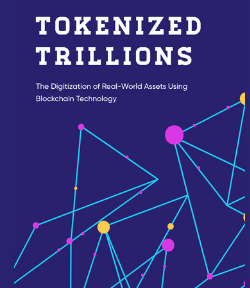
Taiwan mulls Bitcoin reserves in bold move to fortify financial sovereignty
Taiwan is formally exploring the integration of Bitcoin into its national treasury reserves, led by legislator Dr. Ju-chun Ko, with the goals of studying it as a strategic asset and launching a pilot program using seized Bitcoin. The primary motivation is to …
Taiwan Explores Bitcoin Reserves as a Path to Strengthened Financial Sovereignty
In a groundbreaking initiative, Taiwan is actively investigating the prospect of incorporating Bitcoin into its national treasury reserves. This forward-thinking approach, championed by legislator Dr. Ju-chun Ko, reflects a strategic effort to diversify the island’s financial assets while examining the potential of cryptocurrencies as a tool for sovereign economic independence.
The initiative encompasses a comprehensive pilot program that aims to utilize Bitcoin recovered from seizures, effectively transforming these digital assets into functional components of the country’s fiscal strategy. Beyond asset diversification, the program intends to rigorously analyze Bitcoin’s robustness as a store of value under Taiwan's unique geopolitical and economic conditions.
Strategic and Economic Motivations Behind Taiwan’s Move
Taiwan's exploration is largely driven by imperative national security concerns and an ambition to shield its economy from external pressures and traditional banking system vulnerabilities. By integrating Bitcoin as a strategic asset, Taiwan could potentially reduce reliance on fiat reserves influenced by global monetary policies and geopolitical volatility. This aligns with broader global trends where nations are recalibrating their reserve management strategies in the face of increasing economic uncertainties.
Moreover, the move signals Taiwan's readiness to engage with decentralized financial technologies at an institutional level, creating a precedent for governance models that lever digital innovation for national benefit. It also positions Taiwan as a potential regional leader in the acceptance and regulation of cryptocurrencies, setting the stage for future investment inflows and fintech development within its borders.
Challenges and Considerations Moving Forward
Despite its promise, the integration of Bitcoin into national reserves demands careful risk assessment. Bitcoin’s historically high volatility and regulatory ambiguity on a global scale require Taiwan’s policymakers to implement robust frameworks to mitigate fiscal risks and ensure compliance with international financial standards. Additionally, public transparency and clear reporting measures will be crucial in fostering trust among citizens and global partners.
As Taiwan navigates this uncharted territory, its approach could serve as an insightful case study for other nations contemplating similar incorporation of cryptocurrencies into sovereign wealth. The evolving pilot program’s results will be closely monitored by financial institutions, policymakers, and crypto market participants worldwide.
Original Source
Read the original article from Naturalnews.com
Recommended Articles
gapless-crypto-clickhouse 6.0.6
ClickHouse-based cryptocurrency data collection with zero-gap guarantee. 22x faster via Binance public repository with persistent database storage, USDT-margined futures support, and production-ready ReplacingMergeTree schema.

Spot XRP ETFs advance as 21Shares prepares to list ‘TOXR’ on Cboe BZX
Why are institutions buying while retail sentiment fades?

Nvidia’s AI-driven earnings surge sparks market rally, easing bubble fears
Nvidia reported $57B in Q3 revenue (62% YoY growth), exceeding Wall Street forecasts. Profits surged to $31.9B, signaling unstoppable AI demand. CEO Jensen Huang declared AI adoption is accelerating globally, with Blackwell GPUs “off the charts” and cloud GPU…





